detail profile wolfgang ablinger sperrhacke
Peran Yang Di Mainkan Wolfgang Ablinger-Sperrhacke
 Der Ring des Nibelungen in a...
Der Ring des Nibelungen in a...Siegfried 2024
Der Ring des Nibelungen in a production of the Zürich opera house, recorded 2024. "Dramatic music-making at its finest". In the hands of General Music Director Gianandrea Noseda and Stage Director Andreas Homoki, Wagner's myth is represented as "a dysfunctional family of gods" (The Independent) in a polished yet unpretentious production that underscores the humanity of the characters, who are performed by the same exceptional cast of singers across all four operas.
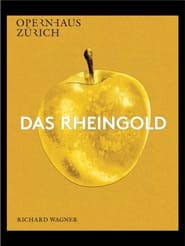 Der Ring des Nibelungen in a...
Der Ring des Nibelungen in a...Das Rheingold 2024
Der Ring des Nibelungen in a production of the Zürich opera house, recorded 2024. "Dramatic music-making at its finest". In the hands of General Music Director Gianandrea Noseda and Stage Director Andreas Homoki, Wagner's myth is represented as "a dysfunctional family of gods" (The Independent) in a polished yet unpretentious production that underscores the humanity of the characters, who are performed by the same exceptional cast of singers across all four operas.
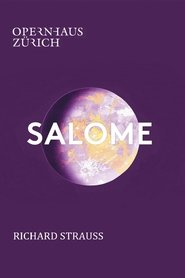 The Galilean Princess Salome is one...
The Galilean Princess Salome is one...Salome - Opernhaus Zurich 2021
The Galilean Princess Salome is one of the mythical female figures in Western cultural history. Her erotic dance in front of her stepfather Herod is already mentioned in the gospels of the Bible, for whom she has the severed head of John the Baptist brought on a bowl in return.
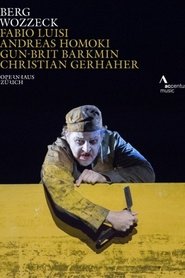 The soldier Wozzeck Christian Gerhaher flits...
The soldier Wozzeck Christian Gerhaher flits...Alban Berg - Wozzeck 2016
The soldier Wozzeck (Christian Gerhaher) flits through a world that he is unable to decipher. The doctor torments him with absurd medical experiments; the captain humiliates and ridicules him. And Wozzeck’s lover, Marie (Gun-Brit Barkmin), with whom he has a child, cuckolds him with the drum major. Wozzeck becomes a murderer, stabbing Marie to death. Georg Büchner’s drama fragment, on which Alban Berg based his first opera, is an unflinching case study of social injustice and human suffering. But it is also a grotesque piece that thrives on exaggeration – and in which only a fine line separates the unfathomable from the ridiculous. Accordingly, director Andreas Homoki forgoes all realism.
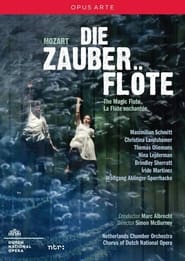 Since its premiere in a tiny...
Since its premiere in a tiny...Mozart: The Magic Flute 2015
Since it's premiere in a tiny suburban theatre in Vienna, Die Zauberflote has delighted audiences young and old for over 200 years. Mozart's Singspiel seamlessly alternates seriousness and jollity, and combines philosophical ideas with a fairytale world of wondrous animals and magical musical instruments. Emanuel Schikaneder's original production was theatrically inventive, and this new interpretation from director Simon McBurney emulates that in fresh and current terms. Fusing music, technology and stagecraft, this exciting production gives Die Zauberflote a refreshing new treatment that is both thrilling and simple in it's approach. Following an overwhelming success on stage, McBurney's unique production received five-star reviews in the Dutch press: 'a feast for the eyes and the ears' (Het Parool) and 'Delicious!' (Trouw).
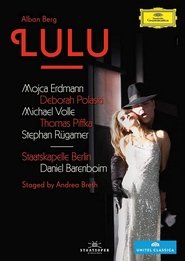 A performance of Alban Bergs opera...
A performance of Alban Bergs opera...Berg: Lulu 2015
A performance of Alban Berg's opera recorded at the Schiller Theater in Berlin. The opera, dark and satirical in tone, charts the story of the rise and fall of a femme fatale, from life as a society hostess to prostitution and, eventually, a bloody death at the hands of Jack the Ripper.
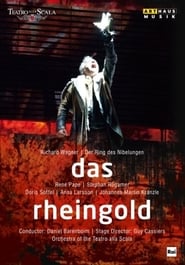 The La Scala Rheingold in May 2010...
The La Scala Rheingold in May 2010...Wagner: Das Rheingold 2013
The La Scala Rheingold in May 2010 inaugurated Guy Cassiers Ring-Cycle and introduces a completely new paradigm to this work. While before him Patrice Chéreau had laid his focus on a historical analysis from 1870 to 1930 Germany, Guy Cassiers’ Ring unfolds “from our own present-day moment; it [takes] place in ‘the now’, the Jetztzeit (Walter Benjamin), placing our present and our future into the context of the promises and curses that we have inherited from history … The Cassiers Ring shows how the globalized moment of 2010 continues to build on the Wagnerian vocabularies of 1870.” (Michael Steinberg) Cast with a number of opera stars like René Pape, Stephan Rügamer, Johannes Martin Kränzle and Anna Larsson and conducted by Daniel Barenboim, this Rheingold is bound to put the audience under its spell.
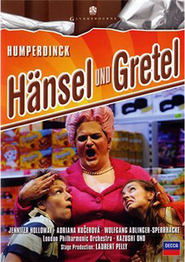 As bright and colorful as penny...
As bright and colorful as penny...Humperdinck: Hansel und Gretel 2008
As bright and colorful as penny candy, this visually arresting production of Engelbert Humperdinck's "Hansel und Gretel" puts a twist on the classic fairy tale upon which it's based by uprooting the action to modern times. Director Laurent Pelly's interpretation, which premiered at Glyndebourne in 2008, finds Hansel, Gretel and their family taking shelter in a cardboard box while the witch's stock of goodies lines the shelves of a supermarket.

 Pendereckis Opera of an entire convent...
Pendereckis Opera of an entire convent...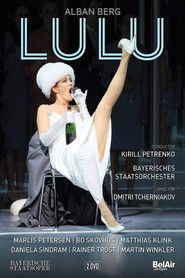 At the Bayerische Staatsoper in Munich...
At the Bayerische Staatsoper in Munich...
